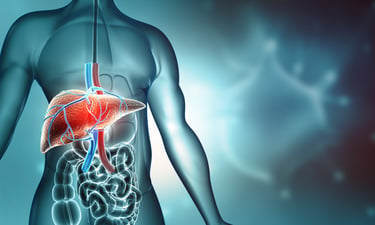eStoreRx™
Online Supplement Dispensary
eStoreRx™ is an easy direct-to-patient ordering & fulfilment program for lifelong wellness.
For over 40 years, Biotics Research Corporation has revolutionized the nutritional supplement industry by utilizing “The Best of Science and Nature”. Combining nature’s principles with scientific ingenuity, our products magnify the nutritional
eStoreRx™ is an easy direct-to-patient ordering & fulfilment program for lifelong wellness.
Biotics Research is proud to expand our commitment to education with the Wellness Unfiltered Pro Podcast. Each episode delves into key health topics and the clinical applications of our premier products. Through candid, insightful conversations, our team offers practical guidance to keep you informed and empowered as a healthcare professional.
February 26 2026
A study published recently in the Journal of Cachexia, Sarcopenia and Muscle raises concerns about a possible side-effect of long-term statin drug use...
 A recent study on pregnant mice has shown that the mother's butyrate had a positive effect on the mortality rate of her pups after their exposure to the infection that induces fatal biliary atresia. Butyrate is a food supplement yet it is also naturally produced during the fermentation of dietary fibers by the body’s intestinal bacteria in the lower intestinal tract, together with glutamine. It has received attention due to its positive effects on energy metabolism and intestinal homeostasis.
A recent study on pregnant mice has shown that the mother's butyrate had a positive effect on the mortality rate of her pups after their exposure to the infection that induces fatal biliary atresia. Butyrate is a food supplement yet it is also naturally produced during the fermentation of dietary fibers by the body’s intestinal bacteria in the lower intestinal tract, together with glutamine. It has received attention due to its positive effects on energy metabolism and intestinal homeostasis.
Previous human studies have explored butyrate’s potential role in improved sleep and tackling obesity, as well as protecting pregnant women’s health. In animal studies, it has been seen to help against potential intestinal injury in infants when administered to the mother.
Biliary atresia is also known as extrahepatic ductopenia and progressive obliterative cholangiopathy, occurs in newborn children. It is a rare disease that occurs when a delicate tree-like set of ducts that carry bile from the liver to the intestine becomes scarred and blocked. Symptoms include light beige stools; dark-brown urine; a swollen belly; difficulty gaining weight and ascites (fluid in the belly). The damage leads to scarring, loss of liver tissue and function, and cirrhosis.
While some cases of biliary atresia are caused by viral infections, the specific cause of disease for many children is not known. Previous studies have not recommended any curative treatments other than a liver transplant.
Although the treatment of laparoscopic Kasai portoenterostomy offered potential benefits of minimally invasive surgery and is a feasible operation, outcomes in terms of native liver survival rates and actuarial survival rates are unfavorable, compared to conventional liver transplant surgery. It is now accepted that this treatment can slow the damage, but most children who develop biliary atresia will die without a liver transplant.
The team conducting this research using butyrate was inspired by a previous study that reported that mice with high levels of the bacterium Anaerococcus lactolyticus appeared to be resistant to biliary atresia. That bacteria is one of several species known for producing butyrate.
Like the mice in the study, it has been observed that human babies with biliary atresia often have very low amounts of butyrate in their systems. In this study, the improvement in survival rates was striking. When newborn mice were exposed to a virus that inter-alia is known to cause biliary atresia (q.v.), about 60% of those born to mothers given butyrate survived, compared to only 20% of the mice born to mothers receiving typical food and water.
Further testing revealed that an adjusted mix of gut bacteria offered the strongest protection. The team was, therefore, able to improve the survival rate up to 83%.
That key compound turned out to be the amino acid glutamine. However, it should be noted that the researchers directly injected pups with glutamine after they were born, rather than feeding glutamine to their mothers. It is thought that the intestinal production of butyrate in neonates also enriched the population of bacteria that makes glutamine inside the intestinal lumen.
Both molecules are important, with glutamine serving as a survival factor for bile duct cells, while butyrate may suppress an unwanted harmful immune response. It appears that both work together to decrease the risk of biliary injury.
The conclusion of the research shows that further investigation and human clinical trials of the butyrate diet for preventing biliary atresia should be held to ascertain whether the success of this study translates to the human disease, the safety of doses strong enough to prevent biliary atresia. The researchers also suggest it would be appropriate to investigate whether glutamine can help repair damage and/or help reopen already clogged bile ducts.
Submit this form and you'll receive our latest news and updates.
*These statements have not been evaluated by the Food and Drug Administration. This product has not intended to diagnose, treat, cure, or prevent any disease.
© 2025 Biotics Research Corporation - All Rights Reserved
Submit your comment